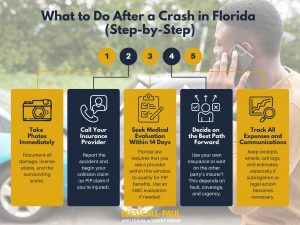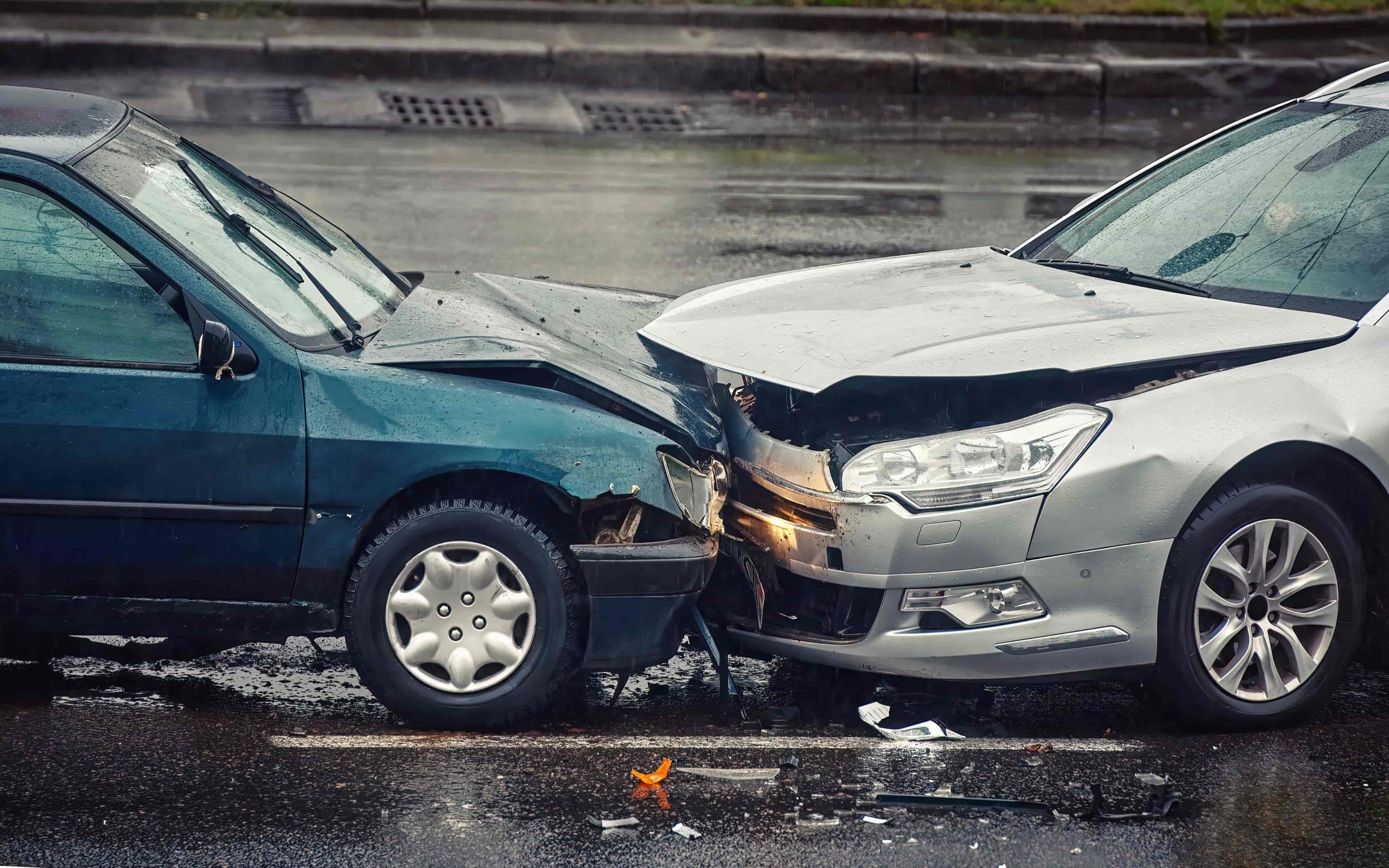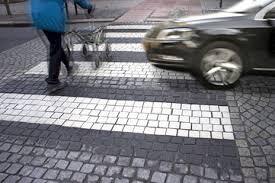In Florida, the at-fault driver’s insurance typically pays for collision damage. However, if you carry collision coverage, your insurer may cover the repairs first and then seek reimbursement. Fault, policy type, and insurance limits all impact who ultimately pays and how much.
Florida’s no-fault insurance system leads many drivers to believe that all crash-related expenses are automatically covered. That’s not the case. No-fault rules apply only to injuries, not vehicle damage.
When it comes to property damage, fault is king. If you’re wondering who pays for your car repairs after a crash, whether it’s you, the other driver, or your insurer, here’s what you need to know. We’ll cover how collision coverage works, how payouts are calculated, and how fault affects everything from timelines to deductibles.
How Florida’s Collision Damage Laws Actually Work
No-Fault ≠ No Responsibility for Vehicle Damage
Florida’s Personal Injury Protection (PIP) coverage is part of its no-fault auto insurance system. But PIP only covers medical bills, lost wages, and limited death benefits. It does not cover vehicle repairs.
For damage to vehicles or property, Property Damage Liability (PDL) steps in, but only if you are at fault. And even then, the required minimum limit is just $10,000, which often falls short in real-world accidents involving newer or leased vehicles.
What Collision Coverage Really Means in Florida
Collision insurance is optional in Florida, but it is often required if you lease or finance your car. It pays for damage to your vehicle, regardless of who caused the crash. This coverage becomes especially helpful when:
- The other driver is uninsured or underinsured
- There’s a dispute over who’s at fault
- You don’t want to wait weeks for the other driver’s insurer to act
Using your collision coverage can expedite the process, even if you’re not at fault. Your insurance company will then pursue subrogation, seeking reimbursement from the at-fault party’s insurer. This way, your car gets repaired while the companies sort out the money.
Who Pays for What? Real-World Scenarios in Florida
Scenario 1 – You’re at Fault
In this case, your PDL will cover damage to the other driver’s car. But when it comes to your own vehicle, you’re responsible, unless you’ve added collision coverage to your policy. Without it, you’re stuck paying out of pocket.
Scenario 2 – The Other Driver Is at Fault
Their insurance company is supposed to pay for your car repairs. In theory, that’s straightforward. In reality? It often involves long waits, lowball offers, or outright denials.
This is where having collision insurance can help. You can get your car fixed quickly using your own coverage, then your insurer will recover the cost later through subrogation. However, you may still have to pay the deductible upfront, which could be refunded once your insurer is reimbursed.

Source -> Investopedia
Scenario 3 – Split Fault or Uninsured Driver
Florida follows a modified comparative fault system. If you’re 51% or more at fault, you can’t recover anything. If you’re 50% or less, your payout is reduced by your share of the blame.
If both drivers are partially at fault, each party pays for their share of damages, unless they have collision insurance. This also applies when the at-fault driver has no insurance. In that case, your uninsured motorist coverage (if you have it) or collision insurance might cover the gap, but again, you’ll probably pay a deductible.
What if both drivers are 50% at fault?
In this case, each driver’s responsibility is equal, so each pays for their own damage. If you have collision coverage, you can file a claim and get your car fixed promptly. But your payout may still be reduced by your portion of fault, and you’ll pay your deductible out of pocket.
How Collision Insurance Payouts Are Calculated
Who Decides What Your Car Is Worth?
After a car accident, your vehicle’s value is typically determined by an insurance adjuster, who considers the depreciation, market value, and condition of your vehicle before the crash. This is where many drivers run into trouble.
Even if you have collision coverage, you may still feel shortchanged. Many drivers report that the values assigned to their vehicles feel low, especially if their car was well-maintained or had custom features not fully accounted for. The emotional and financial gap between what you think your car is worth and what the insurance company is willing to pay can be frustrating.
Deductibles and Depreciation
When you file a collision claim, you’re required to pay a deductible, typically between $500 and $1,000. This applies even if you’re not at fault. Your insurer might reimburse you later, but you’ll need to front that cost to get your car repaired quickly.
And even after repairs are paid, depreciation may still leave you short. For example, if your car is declared a total loss, you receive the pre-accident market value, which might not be enough to buy a similar replacement, especially in today’s market.
“Will My Insurance Go Up If I Use Collision, Even If I’m Not at Fault?”
Yes, it’s possible. While some insurance companies offer accident forgiveness, many don’t, and any claim you file could affect your future premiums. This catches many drivers off guard. Even if your insurer recovers costs from the other party, the claim still goes on your record.
What Affects the Settlement Amount for Collision Damage?
Fault Allocation
In Florida, fault plays a direct role in your financial outcome. If you’re found more than 50% at fault, you cannot recover for your vehicle damages from the other party. If you’re 20% at fault, for example, your compensation will be reduced by 20%.
This often surprises drivers, especially in accidents where both parties bear some blame. It also fuels frustration, many feel that fault assessments by adjusters are inconsistent or unfair, especially when multiple insurers are involved.
Policy Type & Limits
Minimum PDL coverage in Florida is just $10,000, a number that hasn’t kept up with modern repair costs. If you’re in a multi-vehicle crash or your car is totaled, you could quickly exceed what the at-fault driver’s insurance will cover. That’s where collision insurance, underinsured motorist coverage, or even a lawsuit, becomes necessary.
Not all policies include rental reimbursement, towing, or gap coverage, and drivers often find out too late that these protections were never added.
Vehicle Value and Repair Estimates
After a car accident in Florida, your settlement amount is directly tied to how your vehicle’s value is assessed. But what many drivers don’t realize is this: the number your insurance company offers may not reflect what it would cost to replace your vehicle or even what it’s worth to you.
Most insurers utilize automated systems and databases, such as CCC One, Mitchell, or Audatex, to determine the actual cash value (ACV) of your car prior to the crash.
These tools evaluate:
- The make
- Model
- The year of your car
- Mileage at the time of the accident
- Local market conditions
- General wear and tear
But these tools don’t account for recent repairs, aftermarket upgrades, or how well you maintain the vehicle. Even if your car is in excellent condition, your payout may be lower than expected, especially if the system uses comps that don’t accurately reflect the actual local value of your car.
If your car is declared a total loss, the insurer won’t base the payout on what you paid for the vehicle, or even what it would cost to replace it, just on what it was worth on the day of the crash. That means if you’re upside down on your loan, you might still owe money even after the settlement.
When Your Car Is Financed or Leased
Things get even more complex if you don’t own your vehicle outright. In that case, the lienholder (your lender or leasing company) typically has a legal interest in the car and will be listed on the title. That means:
- The insurance check for the damage may go directly to them.
- You may need to get their approval before a payout can be finalized.
- If the car is totaled, you won’t receive the check, they will, to cover the balance of the loan.
This can result in delays, especially if paperwork, title transfers, or communication with the lender slow down the process. In some cases, drivers are left without a vehicle while the insurance company and lender sort out who gets paid, and how much.
For leased vehicles, you might also be responsible for additional fees not covered by insurance, such as lease-end penalties, missing equipment, or mileage overages.
Why This Matters for Your Collision Claim
If your car is totaled and you owe more on your loan than the settlement amount, the difference becomes your responsibility, unless you carry gap coverage, which covers the remaining loan balance. Many Florida drivers skip this optional add-on and find themselves on the hook for thousands of dollars after an accident.
In the meantime, unless you also have rental reimbursement coverage, you could be left scrambling for transportation while the payout process drags on.
Timing & Documentation
Quick action makes a difference. Delaying your claim can weaken your case and raise red flags for your insurance company. The longer you wait to get your car inspected, submit a police report, or provide photos, the harder it becomes to justify your claim amount.
Always:
- Photograph damage immediately
- Request a medical evaluation within 14 days (to meet PIP insurance rules)
- Save every repair estimate and receipt
Questions Clients Ask Applebaum Accident Group
“If Someone Hits My Parked Car And Drives Off, Who Pays?”
Unless you can identify the other driver, your own collision insurance may be your only option. If you don’t have it, you may be left paying out-of-pocket.
“Can I Recover My Deductible If My Insurer Paid For Repairs And Then Won Subrogation?”
Yes. If your insurance company gets reimbursed by the other party, you may receive your deductible back. But this process can take weeks or months, and it’s not guaranteed.
“What If I Only Have Liability And The Other Driver Is Uninsured?”
In this case, you won’t be covered unless you’ve added uninsured motorist property damage (UMPD) or collision coverage. Unfortunately, many find out too late that UMPD isn’t part of basic liability.
“Can I Get Uber/Rental Reimbursement While My Car Is In The Shop?”
Only if your auto insurance policy includes rental coverage, it’s not standard, and without it, you’ll pay for alternative transportation yourself.
“How Long Does It Take To Get Paid Out Under Collision Vs. Waiting On The At-Fault Driver’s Insurance?”
Using your collision coverage typically results in a faster payout, often within a few days. But if you go through the other driver’s insurer, delays can stretch into weeks while fault is investigated.
“Even When I’m Not at Fault, I Still Have to Pay?”
Yes, and that’s a frequent frustration. When you use your collision coverage, your deductible applies up front, even if the other driver clearly caused the crash. You may get reimbursed if your insurer wins a subrogation claim, but in the short term, it’s money out of your pocket.
“I Don’t Understand What I’m Paying For”
Florida’s mix of PIP, PDL, and optional add-ons leads to confusion. Drivers regularly mistake personal injury protection for property damage coverage, believing all damages are covered under “no-fault insurance.” But that’s not the case. In reality, auto insurance in Florida is highly fragmented, with critical gaps unless you’ve customized your policy carefully.
“Uninsured Drivers Are Everywhere, What Then?”
It’s true.
Florida has one of the highest rates of uninsured motorists in the country. If the driver who hit you has no insurance, and you only carry basic liability, you may be stuck. Without collision insurance or uninsured motorist property coverage, your only options are paying out-of-pocket or suing, neither of which guarantees relief.
“No Lawyer Will Take a Property Damage–Only Case”
Unfortunately, many attorneys won’t get involved unless bodily injury is part of the claim. This leaves accident victims feeling abandoned, even when they’ve been left without a car, facing mounting costs, and struggling to deal with an insurance company that’s slow to respond. The process can feel stacked against you.
When to Use Collision Coverage (Even If You’re Not At Fault)
- Speed: Your insurance carrier can begin the repair process immediately without waiting for an investigation to determine fault.
- Certainty: You avoid back-and-forth with another driver’s insurer, which may delay or deny your claim.
- Subrogation potential: You may get your deductible refunded later.
- Protection from uninsured drivers: If the at-fault party has no or inadequate liability coverage, your collision insurance may be your only safeguard.
For financed cars, this coverage is often required by lenders, and for many Florida drivers, it’s a practical way to navigate a complex claims system, especially in cases involving shared fault, hit-and-run, or delayed police reports.
What to Do After a Crash in Florida (Step-by-Step)

- Take Photos Immediately: Document all damage, license plates, and the surrounding scene.
- Call Your Insurance Provider: Report the accident and begin your collision claim (or PIP claim if you’re injured).
- Seek Medical Evaluation Within 14 Days: Florida law requires that you see a provider within this window to qualify for PIP benefits. Use an EMC evaluation if needed.
- Decide on the Best Path Forward: Use your own insurance or wait on the other party’s insurer? This depends on fault, coverage, and urgency.
- Track All Expenses and Communications: Keep receipts, emails, call logs, and estimates, especially if subrogation or legal action becomes necessary.
Helpful Resource -> What To Do After An Accident In Florida
Applebaum Accident Group Can Guide You
At Applebaum Accident Group, through our extensive network, we match accident victims with experienced, responsive attorneys who can take your case seriously, fight for your full compensation, and explain your rights clearly.
If you’ve been in a car accident and feel overwhelmed by the process of getting your vehicle repaired, don’t go it alone.
Your peace of mind matters. Your vehicle, your recovery, and your future deserve someone in your corner.
Take the First Step Toward Justice
If you’ve been injured in a car accident, don’t wait to seek legal help. Call Applebaum Accident Group today, and we’ll connect you with the right attorney to fight for your rights.
📞 855-225-5728 | Request Your Free Consultation Now
With Applebaum Accident Group, you get support, expertise, and access to Florida’s best attorneys – without the stress. Let us help you find the legal representation you deserve.





